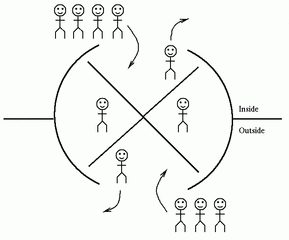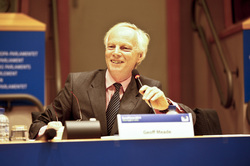There will be much more of this sort of thing in the days and weeks ahead and, just to prove the accuracy of this prediction, I was stopped in the street later by a Finnish photographer of my acquaintance who grinned and demanded to see my visa.
These are the unintended consequences of Brexit that I was due to impart to listeners to BBC Radio Oxford, but when I put the headphones on in the studio there was, literally, radio silence due to a fire alarm.
No matter, I made sure listeners to BBC Radio Manchester were made aware of my concerns that the alleged scaremongering by the Remain camp about the economic consequences of Brexit would turn out to be factmongering.



 RSS Feed
RSS Feed